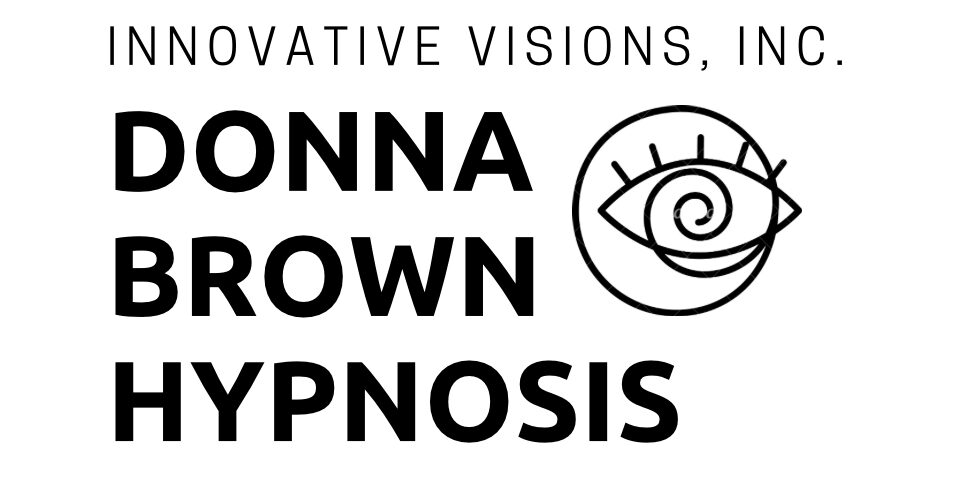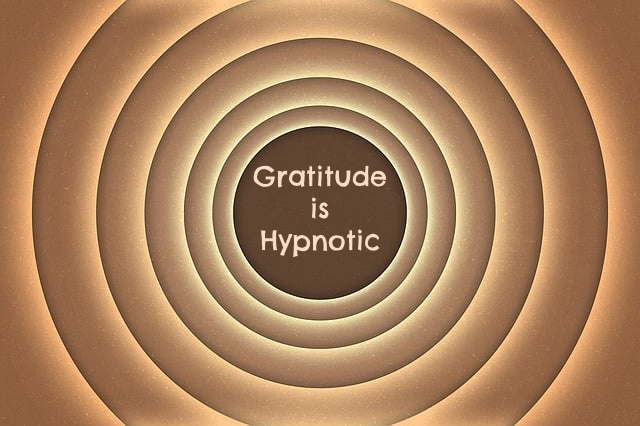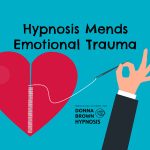When you truly focus on what you appreciate, your mind naturally enters a calm, receptive state that is similar to hypnosis. Gratitude is a form of trance. When you practice gratitude your focus shifts from ‘what’s missing’ to ‘what’s here.’ Your attention moves from lack to abundance.
Gratitude is more than just saying thank you according to Positive Psycology. When we focus on what we appreciate, we begin to notice more moments of joy, connection, and abundance in everyday life. Gratitude acts like a lens that softens our focus on what’s missing and magnifies what’s already good. Studies have shown that regular gratitude practices can lower stress, improve sleep, and enhance overall emotional well-being.
Here are some ways to build your gratitude muscle:
Keep a Gratitude Journal
Go purchase a notebook that is specific used for this purpose. Every morning or evening (this has to do with your preference) write down three things you’re grateful for. They can be as simple as a good cup of coffee or as meaningful as that comment from a coworker that made you feel good.
Take a Gratitude Pause
Take a moment before meals, during your commute, or before bed to silently name one thing you appreciate right now. This morning, I paused to silently be thankful that I had premade delicious food. I smiled when I saw no one would let this one car into the lane and I let the person go in front of me. And last night I was grateful that Netflix had posted the next installment of a show I follow.
Say Thank You
Many people preform random acts of kindness that we don’t acknowledge. The person who held the door open. The wait staff who is genuine and comes back to check if you need anything. The friend who calls just to ask, “What’s up in your life?” What if you sent a quick message to someone who’s made a difference in your life via text, Instagram, of Facebook. Expressing gratitude strengthens relationships and lifts both people.
Take a Gratitude Walk
While walking, notice and mentally list things you appreciate in your surroundings. Outside you might appreciate the sound of birds or even your own body moving. In the mall you might appreciate how a particular store has staged their products, or the delicious smells from the vendors, or the help you received from a salesperson. Little things appreciated can magnetize more appreciation.
Ask a Question
When facing something stressful, ask: “What can I learn today?” or “What can I still appreciate here?” This shifts your mind toward gratitude even in tough moments.
Despite knowing how beneficial it is, many people struggle to keep a consistent gratitude habit and delve into old mental patterns. That’s when worry, self-criticism, and scarcity thinking takes over. When that happens, it is time to schedule your Hypnosis session.
Hypnosis helps quiet the busy, analytical mind and creates a relaxed state where the subconscious becomes more open to positive suggestions. Through hypnosis, people can reprogram limiting beliefs that block genuine appreciation.
A hypnotic suggestion might help someone naturally notice moments of kindness or recognize their own achievements rather than overlooking them. By planting new mental beliefs, hypnosis helps gratitude become an automatic response rather than something forced or forgotten.
Over time, the combination of a gratitude practice and hypnosis sessions can transform how a person feels and functions. The mind begins to tune into appreciation as its default setting, strengthening resilience and emotional balance.
Gratitude will always expand you as you notice blessings instead of burdens.
This Houston Hypnotist is ready when you’re ready.

Donna Brown is a Certified Hypnotist serving Houston and Katy, Texas, with over a decade of experience helping clients create lasting change through the power of the subconscious mind. Donna specializes in relationship hypnosis, emotional release, trauma resolution, and subconscious reprogramming. She also offers comprehensive hypnosis services to support habit change, smoking cessation, weight loss, and other traditional goals. Her certifications include Hypnosis, Access Bars, Access Facelift, Access Certified Miracle Worker, Body Code, Emotion Code, Belief Code, Psych-K, and NLP.






